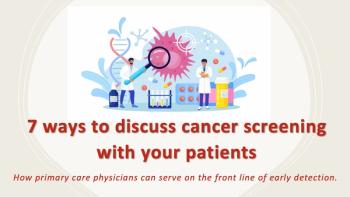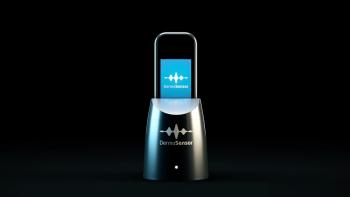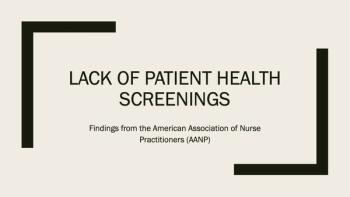
Primary care physicians have a chance to save lives through early detection of cancer.

Primary care physicians have a chance to save lives through early detection of cancer.

U.S. Preventive Services Task Force taking nominations through mid-March for national panel of health care advisers.

Targeted Genomics’ new at-home GlutenID test provides consumers direct access to their inherited risk profile.

Autonomous solution doesn’t require dilation in vast majority of cases

Primary care, oncology can use team approach to improve prevention and screening efforts.

Just one-third of U.S. counties have gastroenterologists, leaving millions without sufficient digestive care.

Screenings are also crucial, but prior authorization requirements create a barrier to care.

A new study highlights the potential of AI for early detection of PH.

A family medicine specialist who works with cancer survivorship explains a study that shows how vital screenings are for patients.

New study highlights gaps in education on preventive screening, genetic testing and mental health support for adoptees with limited family history.

A Mass General Brigham study suggests that LLMs could be used to aid clinicians during physical exams.

One in four Americans experience functional decline by age 65, making fall risk management crucial for primary care practices.

Evidence is uncertain about effectiveness of screening in men.

Practical strategies for delivering life-changing news with empathy and expertise.

It’s not too late to make a new year’s resolution to eat better. Here’s some good advice on eating for patients and physicians.

A recent systematic review analyzed the use of Brief Geriatric Assessments (BGAs) as a tool for screening older adults in primary care settings.

Physical inactivity is a major risk factor for several chronic health conditions and should set off red flags during primary care visits.

Early screening for cancer is critical and PCPs play a major role in educating patients about regular screenings.

The cost-effectiveness of using AI-ECG is $27,858 per quality-adjusted life year, and it’s particularly cost-effective in outpatient settings.

14 million Americans will have Alzheimer’s disease by 2060, and many cases of cognitive impairment go undetected by PCPs. Key points from a recent summit offer new insights into screening methods.

The U.S. Preventive Services Task Force highlights key research gaps in their recommendations intended to promote public health for all.

The approach offers bilingual support, mailed outreach, and no-cost screening.

DermaSensor is a new FDA-approved handheld that is designed to scan and assess skin lesions in the primary care clinical setting. Rebecca Hartman, MD, MPH, describes how it works.

New research from the American Association of Nurse Practitioners affirms the current problems of the U.S. health care system, as well as some improvements from 2023.

How physicians can help close the awareness gap and support families to screen for type 1 diabetes